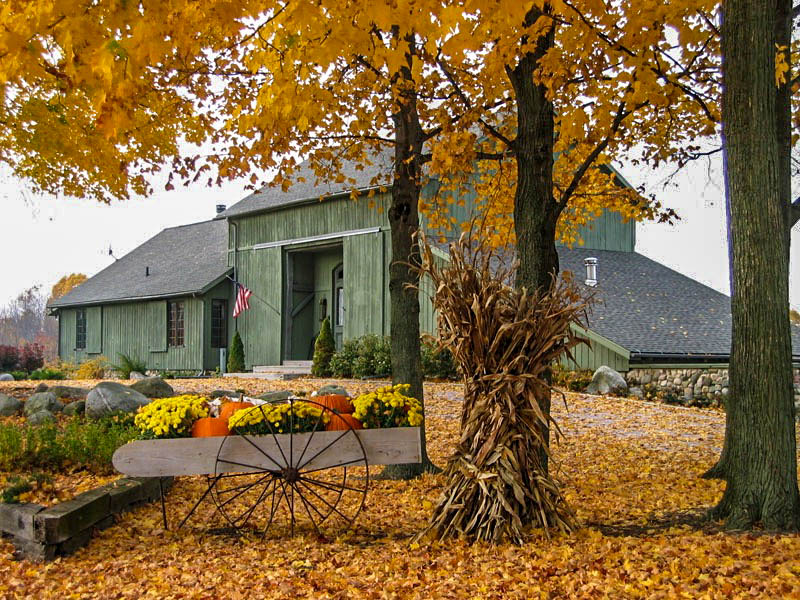Origins of Big Rock Valley
Among their many commonalities, Ed and Darlene shared a passion for the outdoors.
Born in St. Paul, Minnesota, Ed recalls visiting his maternal grandparents at White Bear Lake. “Since that time in my earliest childhood, I’ve been in love with wood and the trees that wood comes from,” he wrote. When Ed was five years old, his parents moved to Marcellus, Michigan, which enabled him to spend more time outdoors. In his writings, Ed recounts joyful memories of hiking and camping throughout Cass County with his cousin Loren, armed with Army surplus backpacks that his grandmother had filled with lunch provisions and homemade soda pop.
In 1964 Ed bought a 160-acre parcel of land in Cass County, his favorite spot for mushroom hunting — and pondering. Over the years he continued to buy adjacent land and eventually accumulated more than 2,000 acres of contiguous forest, meadows, ponds and streams. Named “Big Rock Valley” for the many large rocks deposited by glaciers, the property served a variety of uses over the years, including a site for ELI offices.
Pickle Barrel Golf Course
The Pickle Barrel Golf Course was designed as a chipping course, with players hitting balls from hillside to hillside into the large wooden barrels. In the mid-1970s, Ed began hosting annual golf tournaments on the course as a thank-you event for ELI employees, brokers and suppliers. To add interest to the event, Ed paid two professional women golfers to participate.
Leveraging Human Capital
When Ed and Darlene married, they first renovated an old barn and a cabin at Big Rock Valley, which became their personal residences. (Ed favored the cabin while Darlene preferred the Barn House, and they would joke about whether to stay at “my house” or “your house.”)
Ed and Darlene also renovated a number of old farmhouses to accommodate ELI company meetings and guests. Yet in the 1980s, when the couple began laying groundwork for the foundation, their vision for Big Rock Valley shifted, and they began developing the property as a learning campus for entrepreneurs.
“Ed had keen insights into learning because he didn’t develop his skills in the traditional business school environment,” observes Don Bauters, the foundation’s CFO. “He also wanted people to come to Big Rock Valley — and for the foundation to be an operating foundation that could run its own programs.” Unable to secure IRS approval for this structure, however, the foundation first launched as a grant-making institution in 1985. “Yet Ed was a fighter,” Bauters continues. “He continued to appeal to the IRS and in 1991 was able to convert the organization into an operating foundation.”

In addition to becoming a quiet refuge for business owners, Big Rock Valley reflects Ed and Darlene’s creativity and affinity for repurposing materials. Case in point: Five railroad boxcars were converted into sleeping quarters for guests, and the transformation of several pole barns created a turn-of-the-century small town, complete with its own tavern. Ed named the area “Billieville” after Darlene’s middle name.
With a penchant for operating heavy equipment, especially bulldozers, Ed cleared much of the Billieville area, along with many secondary roads throughout the property. Indeed, foundation employee Keith Green recalls Ed once telling him that “other people play golf to relax. This is my golf game.”
Ed also had a fondness for buying unique things, and Big Rock Valley became a repository for many of his impulsive purchases, such as the boxcars and some 150 wooden pickle barrels. Some of these barrels were used for flower beds, others for hot tubs, and 18 were used to create a whimsical golf course.
““Ed had keen insights into learning because he didn’t develop his skills in the traditional business school environment.”
— Don Bauters